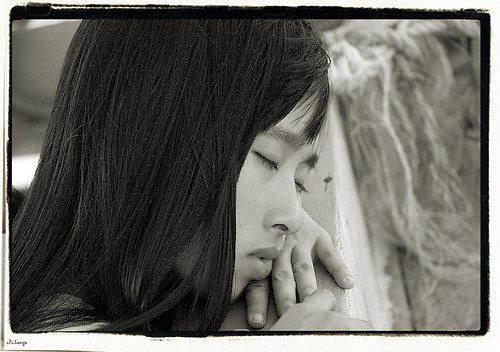This post is also available in Dutch.
We all have different chronotypes: a preference for when we wake up and when we go to sleep. Going against your chronotype can cause problems like “social jetlag.”

Image by ePi.Longo (CC BY-ND 2.0)
You have probably been asked before whether you’re a morning person or an evening person. It turns out that this is just the tip of the iceberg; this distinction goes much deeper, as Till Roennenberg explains in his book Internal Time.
Roennenberg explains that each of us wakes up naturally at a different time, which leads to differences in the time we have our peak energy or in when we end up getting tired. He breaks it down in a simple way, so you can figure out when you have your natural wake up time and your peak energy window.
Make the most of your peak energy window
If you don’t set the alarm clock, at what time do you wake up? That’s your natural wake up time.
After you’ve naturally woken up, the body has some sleep inertia (remaining sleepiness) which lasts for 2-3 hours. Once the sleep inertia has receded, your peak energy window starts and lasts for about 4 hours. You can see an example of this in the image below:

Image credit: Marisha Manahova
Social jetlag
According to Roennenberg, if you go against your chronotype (i.e., your preference for when you wake up and go to bed) for a long time, you will experience social jetlag: the feeling of being tired all the time and getting energy peaks at what feels like the wrong times.
Work environments are often geared towards early chronotypes and thus may hinder late chronotypes. If you naturally wake up late but your job forces you to get up early, you may be perpetually tired. You may find yourself sitting at your desk in the morning, sleepy and unable to focus. This impacts your productivity and makes you feel like you can’t do your work well. Perhaps you even feel energetic and focused in the evening. But because society expects you to unwind instead of work in the evening, you may not be able to use that time of clear focus for work. Teenagers often experience this (read more here).
Early chronotypes don’t always have it easy though. Most social activities, especially parties, often take place in the evening. If you get sleepy in the evening, you may have no energy to engage with others at a party. You may come across as a bit of a boring person, when in fact you may be fun and lively earlier in the day.
What to do
Roennenberg warns that social jetlag can be a real issue. If we disregard our chronotype for too long, and especially if we don’t get enough rest, this can contribute to stress, burn out, depression, and other health concerns.
How do we avoid social jetlag? The easiest thing to do, if your work schedule is flexible, is to get up close to the time when you naturally wake up. If you have a late chronotype, then try to go to work a bit later. You can do your most important work during your peak energy window to improve productivity.
Another essential part is to get enough rest. Improve your sleep hygiene so you can get restful sleep. And get enough of it. This is especially important if your work schedule is not flexible. If you must wake up early, then make sure you get enough sleep, so you can be as rested as possible and counteract some of the effects of social jetlag.
Written by Marisha. Edited by João.
